MY STORY: I Came From Sweden to India and Saw How One Man Is Transforming a Village in WB
It began in rural southeast West Bengal, in the small village of Ullon close to Lakhsmikantapur. It is one of the poorest and most backward districts in the state. Here, 6,00,000 trees were planted in the early 1980s by Mr Mondal's father.
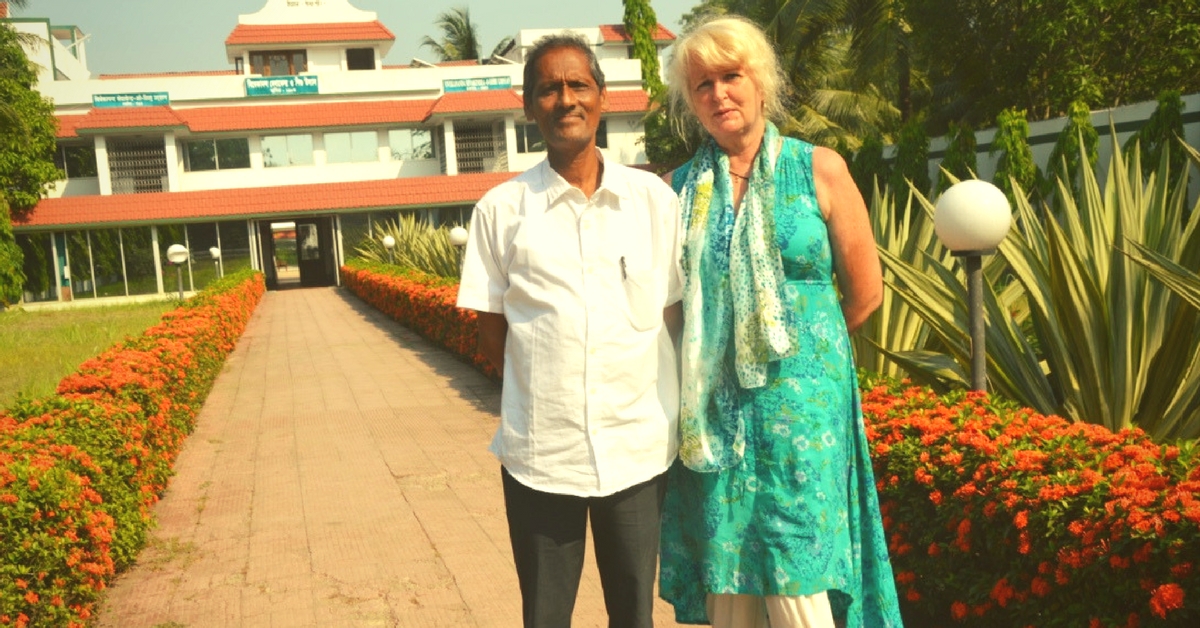
My travel to India started with an email sent to me a freezing cold January day in Sweden. I remember it was minus 17 C outside.
In this email was a friendly invitation from Mr Kapilananda Mondal, at Vivekananda Sevakendra – O – Sishu Uddyan (VSSU) in the remote village of Ullon, South 24 Parganas, West Bengal. Mr Mondal invited me to his village and organisation and promised to provide food and lodging and all necessary help to make my stay good and interesting.
It came just like that. I met people in West Bengal who became my friends for life. Mr Mondal in particular.
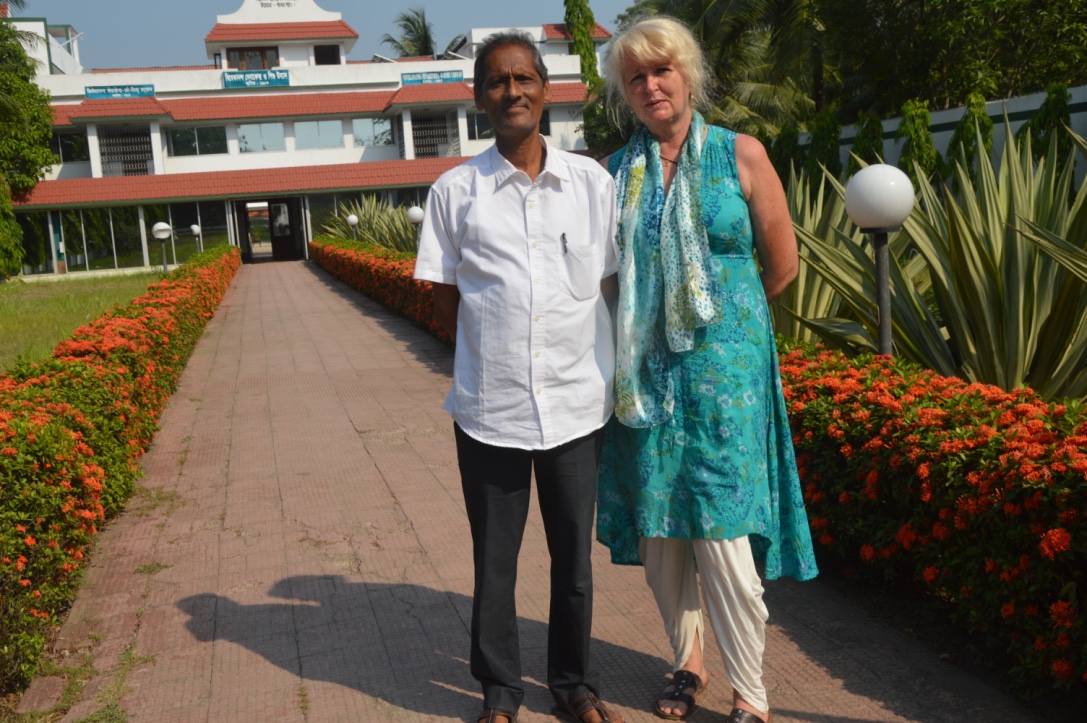
How can I understand a man and his vision? To fully understand what drives a man like Mr Mondal – his work and vision – you need to spend time in his environment for a while. He sent me some links to websites on the internet. Still I had problems to really comprehend and understand the scale of is work. During the first days in Ullon village I was just amazed and didn’t fully understand. Not until I sat eye to eye with him.
Mr Mondal is a man you must meet as well as observe on some distance for a couple of days. This is because he is a very humble man who never emphasizes himself. What is his driving force?
“I was born poor, he says to me, but money and wealth I cannot take with me when I die. I want to understand myself and through my work I can come closer to God. Not just by worshipping, but by doing good things, work hard and love everything created. And all this I do to fully understand myself,” he says.
I am in rural southeast West Bengal, in the small village of Ullon close to Lakhsmikantapur. It is one of the poorest and most backward districts in the state. Here, in what can be described as a sort of no mans world, 6,00,000 trees were planted in the early 1980s by Mr Mondal’s father. That’s where it all began.
Young Mr Mondal wanted to do good things and follow in his father’s footsteps, dreaming that this can go on and develop in the next generation as well. In 1983 he founded VSSU.
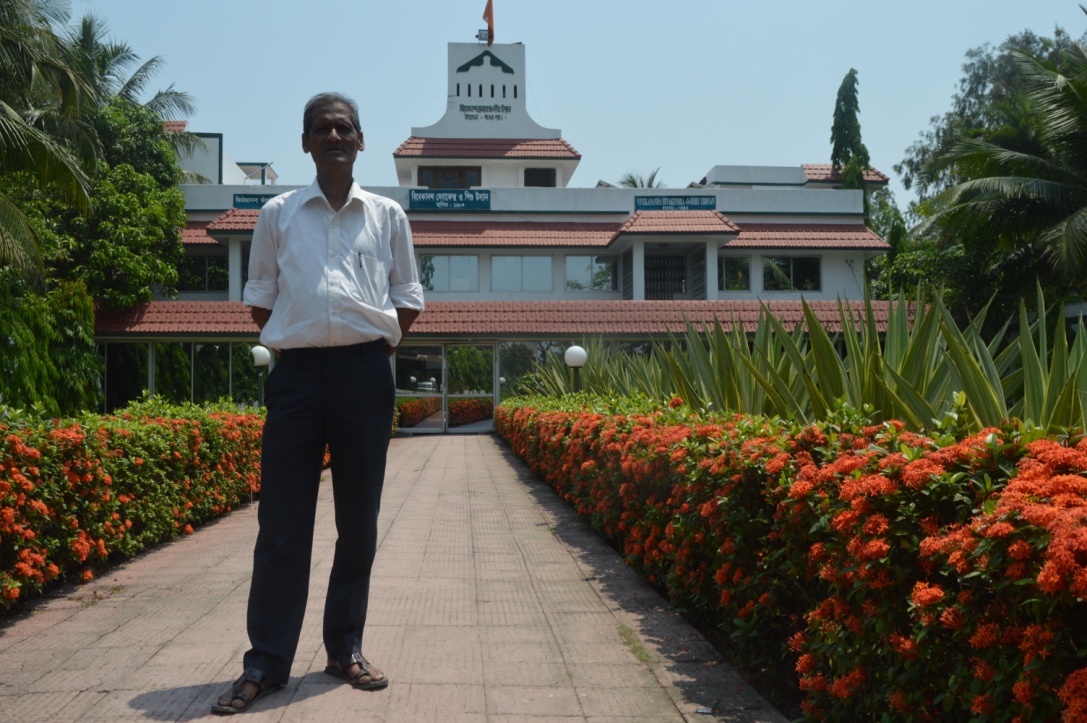
During a week I got the opportunity to work as a teacher in VSSU International school in Ullon. Personally, I love to see people with smiles on their faces. Once Mr Mondal asked me whether the children in the school looked happy to me. They did, I told him, because everywhere I see smiling faces. So what makes Ullon village special?
Well, the first thing that strikes me is all the amazing buildings I come across in the middle of rice paddies, ponds and clay huts. Big, white painted, multi-storied buildings that are very far from my image of a rural village in West Bengal. While returning from my sightseeing I noticed another, more normal, rural image. Village people slowly cruising by on bicycles, and suddenly comes a man walking, carrying an enormous pile of rice husks on his head.
When sun is about to set I meet a huge gathering of young Bengali women returning from the industrial sewing school located in a nearby building. They are about to relax and have dinner at the boarding complex where I also stay. Soon the air is filled with voices and laughter and the sound of the bigscreen TV that has been put out on the inner yard. Reciting songs and drums from the temple is heard throughout the night. Accompanied by fire flies and frogs. It is kind of magic for a person from Sweden, like me.
Mr Mondal started up a local micro financing project, but soon realized this alone was not enough.
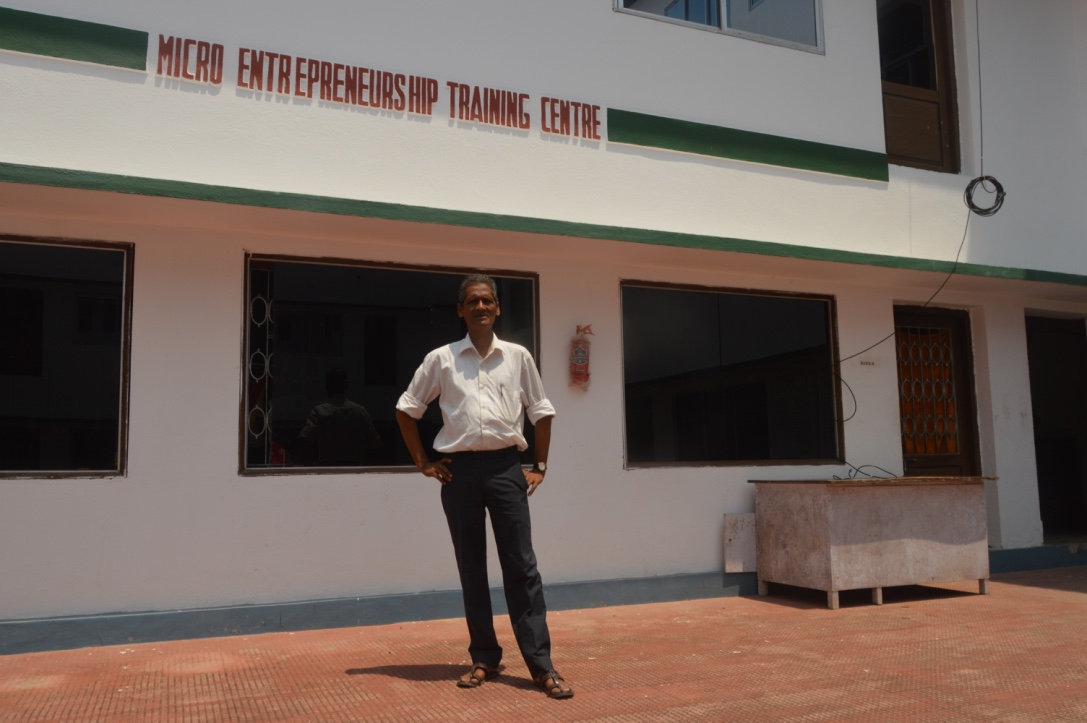
It had to be followed by development for the village and the district and to get local people proud to get involved in the process. Today VSSU has 126 persons employed, working with an almost uncountable number of projects. One branch in this organization is the international school, VSSU International School. Today the school has 135 students, and 40 of them stay at the boarding complex.
In January 2016 VSSU started yet another project, a government-sponsored tailoring, computer and spoken English training program involving 4,000 underprivileged young men and women from five rural districts in West Bengal.
Mr Mondal is a man of visions who is working for the good of his village and the district, he hope to attract investors and is dreaming of a sustainable, modern and developed district. These dreams include, among other things, self-sufficiency regarding electricity. A small hospital is also on the list.
Today there is a woman doctor who is visiting the village three days per week, examining her patients in the local library. She goes around the village on foot, visiting people who are unable to come to the library.
“People here must rise from poverty and stay in this rural area. Everything we need is here. We just have to educate everyone to develop it. My dream is simply a Bengal smart village,” Mr Mondal explains to me.
In the middle of all this is the hard working Mr Mondal, struggling. Against banks for instance who are not so fond of the VSSU micro-financing project. Today, Mr Mondal is fighting eight cases in court regarding licenses and income tax. And this is done to a man who never asks for a single thing for himself. When travelling he is only spending one dollar or two, including a simple bed in a cheap hotel.
“I am just sleeping there a couple of hours, why spend money on expensive hotels,” he says.
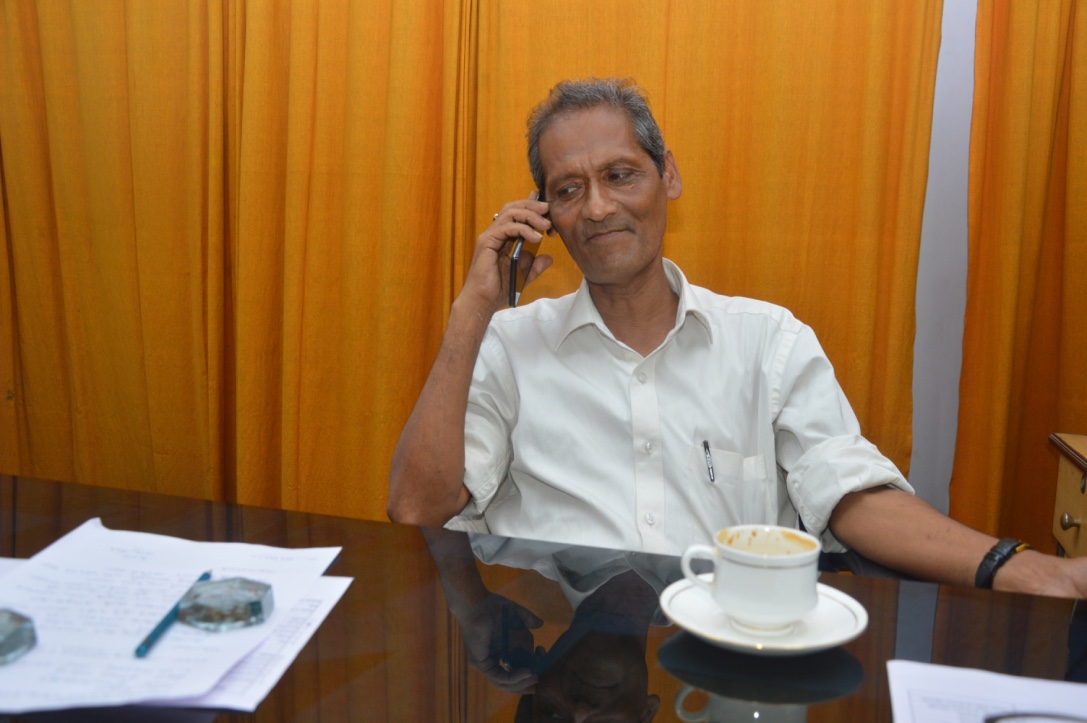
Mr Mondal works 16 hours per day and almost never rests. He has received several awards and deserves all the attention he can get. His father planted 6,00,000 trees, which give shade, bind the earth and provide firewood for cooking.
Mr Mondal gives hope to a forgotten part of the world. And he makes me believe in humanity. Every day, he gathers strength to be able to do what he is doing. And no – he never rests.
When watching him I ask myself – what can I do? What can you do?
(Written by Tina Justesen-Flensburg, Pictures by Anders Edgren)
Know more about VSSU here.
Like this story? Or have something to share? Write to us: [email protected], or connect with us on Facebook and Twitter.
NEW: Click here to get positive news on WhatsApp!
If you found our stories insightful, informative, or even just enjoyable, we invite you to consider making a voluntary payment to support the work we do at The Better India. Your contribution helps us continue producing quality content that educates, inspires, and drives positive change.
Choose one of the payment options below for your contribution-
By paying for the stories you value, you directly contribute to sustaining our efforts focused on making a difference in the world. Together, let’s ensure that impactful stories continue to be told and shared, enriching lives and communities alike.
Thank you for your support. Here are some frequently asked questions you might find helpful to know why you are contributing?


This story made me
-
97
-
121
-
89
-
167













